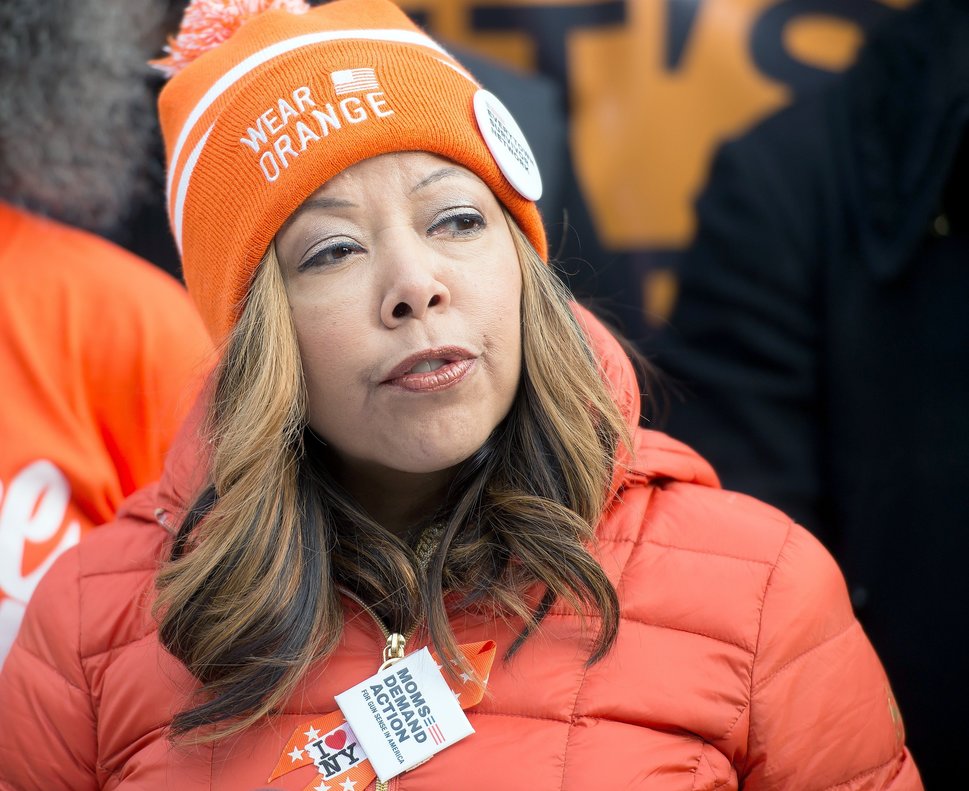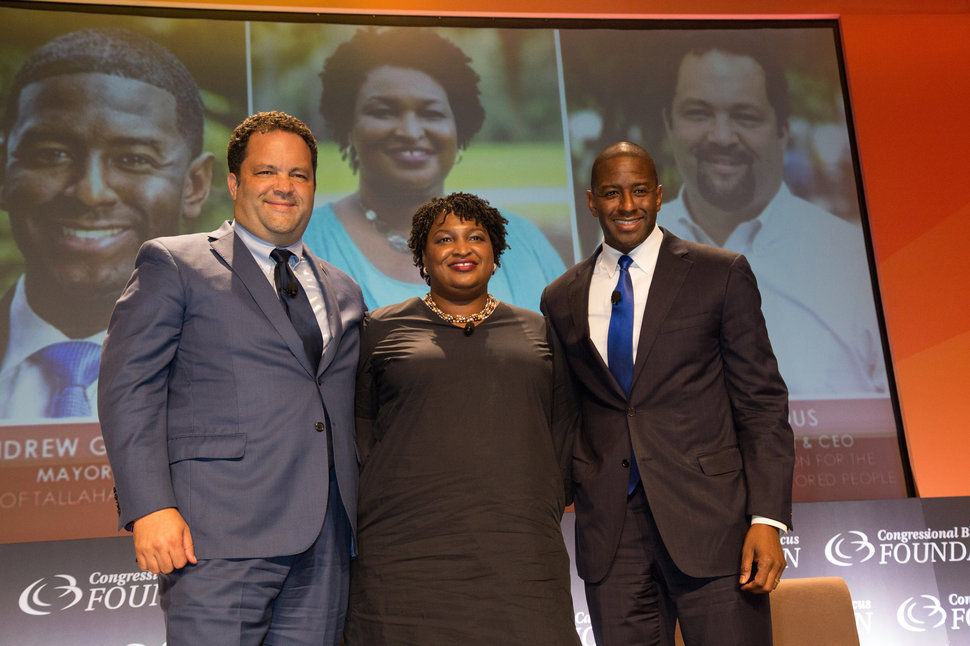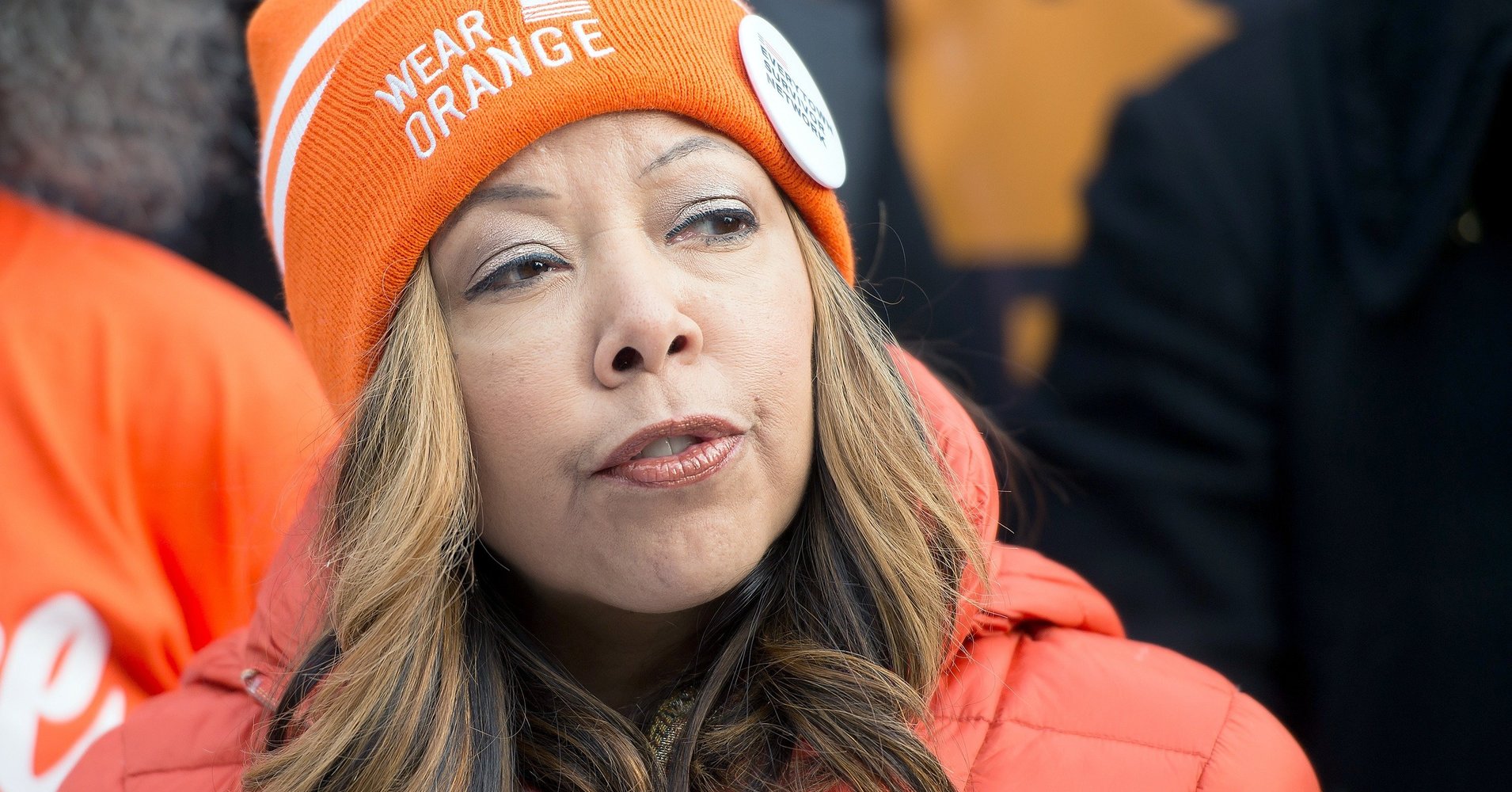[ad_1]
Lucy McBath’s name is intimately tied to the issue of guns. The Democratic candidate for Georgia’s 6th Congressional District was first thrust into the national spotlight in 2012, when her black 17-year-old son, Jordan Davis, was shot dead at a Florida gas station by a white man complaining about loud music. McBath’s tragic loss became the fuel for years of advocacy for gun safety. And after the Parkland, Florida, school shooting in February, she set her sights on Congress.
Her run is not only part of the wave of a record number of women running for office this year, but it’s also a test as to whether a candidate running primarily on gun control can win in a state with gun-friendly laws in the heart of the Deep South, which has some of the nation’s highest rates of gun ownership.
McBath faces a tough race. The odds are stacked against the political newcomer vying to unseat Republican incumbent Karen Handel, who beat Democrat Jon Ossoff in a special election last year that was the most expensive House race ever. And her suburban Atlanta district has long been a GOP stronghold.
But advocates are optimistic that she could win, pointing to Georgia’s growing diversity ― more people of color, and likely Democrats, are moving into the state, including to McBath’s district ― and the evolving attitudes on gun control in the state and the nation.
Whether or not McBath pulls off an upset, it won’t have been a function of her gun control platform ― which includes policies most Americans support, pollsters and organizers said. What’s more, the issue of gun control alone doesn’t tend to motivate voters to head to the polls.
“People have an idea of what they think Georgia is: super-conservative and really red. None of those things are true,” said Nse Ufot, executive director of the New Georgia Project, which has registered more than 250,000 black and Latino voters in the state in recent years.
“[McBath’s] candidacy seems right on time for parents of school-aged kids concerned about losing kids to gun violence,” Ufot added.

Mike Pont/WireImage via Getty Images
Nearly one in three Georgia residents owns a gun ― mirroring the nationwide average. The state’s gun-friendly laws require no license, registration or permit to purchase a firearm, and in 2014, the governor signed what gun safety groups dubbed a “guns everywhere” law, allowing licensed gun owners to carry in public places like bars, schools and churches. Its “campus carry” law allows permitted owners to tote guns on college campuses.
Although McBath’s story and campaign are undeniably connected to gun safety, the national advocate for gun safety group Moms Demand Action emphasizes that she is not against gun ownership and she supports Second Amendment rights. Her platform calls for “common-sense” gun control measures, like background checks, restricting purchases for anyone with a domestic violence history and raising the age to purchase any kind of gun to 21.
Two-thirds of Americans support stricter gun control measures ― including about half of Republicans, according to a CNN poll from earlier this year. There is high support, even among gun owners, for McBath’s policies, including limiting access for people with mental illnesses. Even in Georgia, about 90 percent of likely Democratic voters and nearly half (47 percent) of likely Republican voters support stricter gun laws, according to an April poll by the Atlanta Journal-Constitution.
McBath also has the benefit of running in a district that, while majority Republican, tends to lean more moderate, with a highly educated and relatively affluent population. The suburban district was previously represented by Republican leader Newt Gingrich, and Tom Price won his 2016 re-election there by double digits. But in the 2016 presidential election, it only narrowly went for Donald Trump.
“This is not a ‘culture war’ district. It’s the Deep South, it’s Georgia, but it’s suburban,” said Zac McCrary, partner at Alabama-based Democratic polling group Anzalone Liszt Grove Research.
And the district has been changing in Democrats’ favor. While residents are still majority white, more people of color have been moving in in recent years ― and the growing population of Latinx, Asian, black and young voters is more likely to vote Democratic. They are also more likely to support gun control, as gun violence, including police shootings, disproportionately affects communities of color.
But even among the district’s non-Latino white residents ― particularly suburban, college-educated white women ― there tends to be high support for stricter gun control measures, as mothers worry about their kids’ safety amid nationwide concern about school shootings.
“This is just not your grandfather’s Georgia,” said McCrary, adding that the state is “becoming more Democratic by the day.” Georgia as a whole is becoming more diverse and more left-leaning. The state’s demographic evolution may be following similar patterns as those of nearby North Carolina, McCrary noted, which in the last decade went from a red state to a swing state, or Virginia, which was once reliably Republican and now votes Democratic.
“Irrespective of what happens in 2018, it feels that Republicans are on borrowed time,” he said.
This is just not your grandfather’s Georgia.
pollster Zac McCrary
The politics of gun control in Georgia and across the South may be changing, too. Georgia has long been steeped in “gun culture,” and it has influenced both Democratic and Republican politicians, said Andra Gillespie, associate professor of political science at Emory University in Atlanta, who specializes in political mobilization and race. Although Democratic candidates in the state have tended to shy away from gun control issues to appeal to more moderate voters, that may no longer be as much the case.
Another prominent candidate in the state, Stacey Abrams, who is vying to become the nation’s first black woman governor, is also running on a strong gun control platform. She’s boasted on Twitter of her “F” rating from the National Rifle Association. (Her Republican opponent Brian Kemp, however, garnered national attention earlier this year with an ad that shows him sitting in his living room pointing a shotgun at a young man.)
In the rest of the South, other Democratic candidates have been running on bold gun safety platforms ― with some success. Last year, Democrat Ralph Northam won the governor’s race in Virginia while pushing his gun safety credentials. This year, candidates Andrew Gillum for governor in Florida and Beto O’Rourke for Senate in Texas are in tight races in Southern states, pushing for gun control and speaking out on racism and gun violence.
Back in Georgia, McBath’s opponent Handel ― who received an “A” rating from the NRA ― appears to be staying quiet on gun issues. She doesn’t mention guns anywhere on her website.
That may be because her team “knows that’s a loser for her,” McCrary said, as opposing stricter gun measures could alienate some of the voters she needs in her suburban district.
“And that’s a marked change from the politics of 20 years ago,” he added.
Handel’s campaign did not return a request for comment.
While gun control may not be a liability for McBath, one possible downside to its centrality in her story and campaign is that some voters could see her as a “one-issue candidate,” experts noted.
But Ufot, whose group is working in the district, said McBath is also well known there for issues beyond guns ― as a two-time breast cancer survivor who supports Medicare for all, for instance, and a decades-long flight attendant and single mom pushing for a higher minimum wage.

Brian Stukes via Getty Images
McBath is still very much an “underdog,” Gillespie said. And the district still has “Republican DNA” and “muscle memory for voting for Republicans,” McCrary said. To win, McBath would have to turn out new Democratic voters and win over some Republicans or hope they stay home.
Democratic turnout could be aided by voters showing up for Abrams in the potentially historic statewide race and by nationwide energy against Trump and Republicans’ hold on Congress ― although higher enthusiasm among Democratic voters in November is no guarantee.
Former President Barack Obama and 2016 Democratic presidential nominee Hillary Clinton have both endorsed McBath, as did gun reform groups Giffords and Everytown for Gun Safety (Moms Demand Action is its grassroots arm), EMILY’s List and Planned Parenthood.
And in the Trump era, there have been several unexpected election outcomes ― such as Democrat Doug Jones’ victory last year in Alabama as the state’s first Democratic senator in 25 years. McBath is also part of a wave of progressive women of color running and winning in 2018.
“If we’ve learned anything in this election season, we don’t know what’s going to happen,” said Moms Demand Action founder Shannon Watts. “You can’t even let these elections be predicted by polls. It’s about momentum and voter energy ― she has that.”
[ad_2]
Source link

